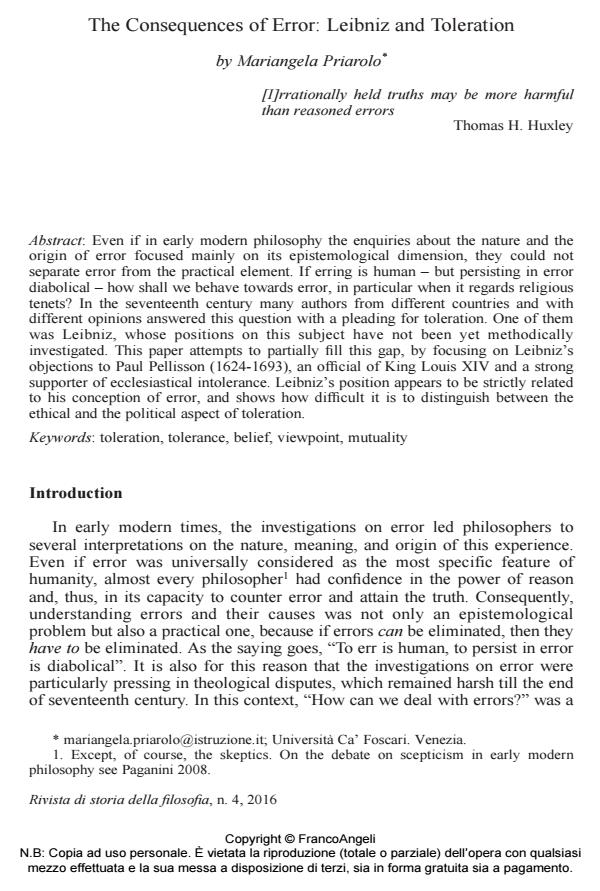The Consequences of Error: Leibniz and Toleration
Titolo Rivista RIVISTA DI STORIA DELLA FILOSOFIA
Autori/Curatori Mariangela Priarolo
Anno di pubblicazione 2016 Fascicolo 2016/4
Lingua Inglese Numero pagine 0 P. 745-764 Dimensione file 71 KB
DOI 10.3280/SF2016-004012
Il DOI è il codice a barre della proprietà intellettuale: per saperne di più
clicca qui
Qui sotto puoi vedere in anteprima la prima pagina di questo articolo.
Se questo articolo ti interessa, lo puoi acquistare (e scaricare in formato pdf) seguendo le facili indicazioni per acquistare il download credit. Acquista Download Credits per scaricare questo Articolo in formato PDF

FrancoAngeli è membro della Publishers International Linking Association, Inc (PILA), associazione indipendente e non profit per facilitare (attraverso i servizi tecnologici implementati da CrossRef.org) l’accesso degli studiosi ai contenuti digitali nelle pubblicazioni professionali e scientifiche.
Even if in early modern philosophy the enquiries about the nature and the origin of error focused mainly on its epistemological dimension, they could not separate error from the practical element. If erring is human - but persisting in error diabolical - how shall we behave towards error, in particular when it regards religious tenets? In the seventeenth century many authors from different countries and with different opinions answered this question with a pleading for toleration. One of them was Leibniz, whose positions on this subject have not been yet methodically investigated. This paper attempts to partially fill this gap, by focusing on Leibniz’s objections to Paul Pellisson (1624-1693), an official of King Louis XIV and a strong supporter of ecclesiastical intolerance. Leibniz’s position appears to be strictly related to his conception of error, and shows how difficult it is to distinguish between the ethical and the political aspect of toleration.
Parole chiave:Toleration, tolerance, belief, viewpoint, mutuality
Mariangela Priarolo, The Consequences of Error: Leibniz and Toleration in "RIVISTA DI STORIA DELLA FILOSOFIA" 4/2016, pp 745-764, DOI: 10.3280/SF2016-004012